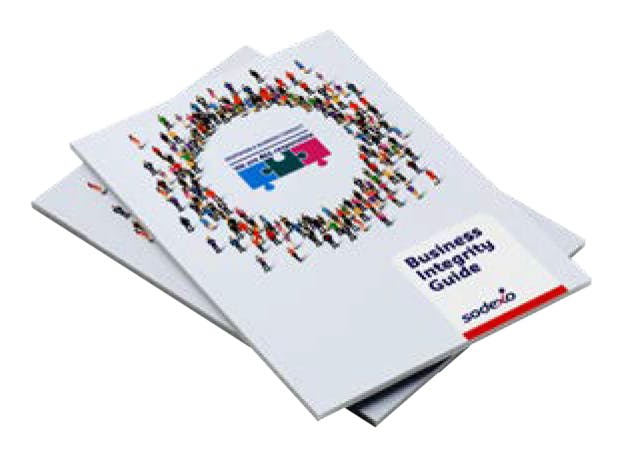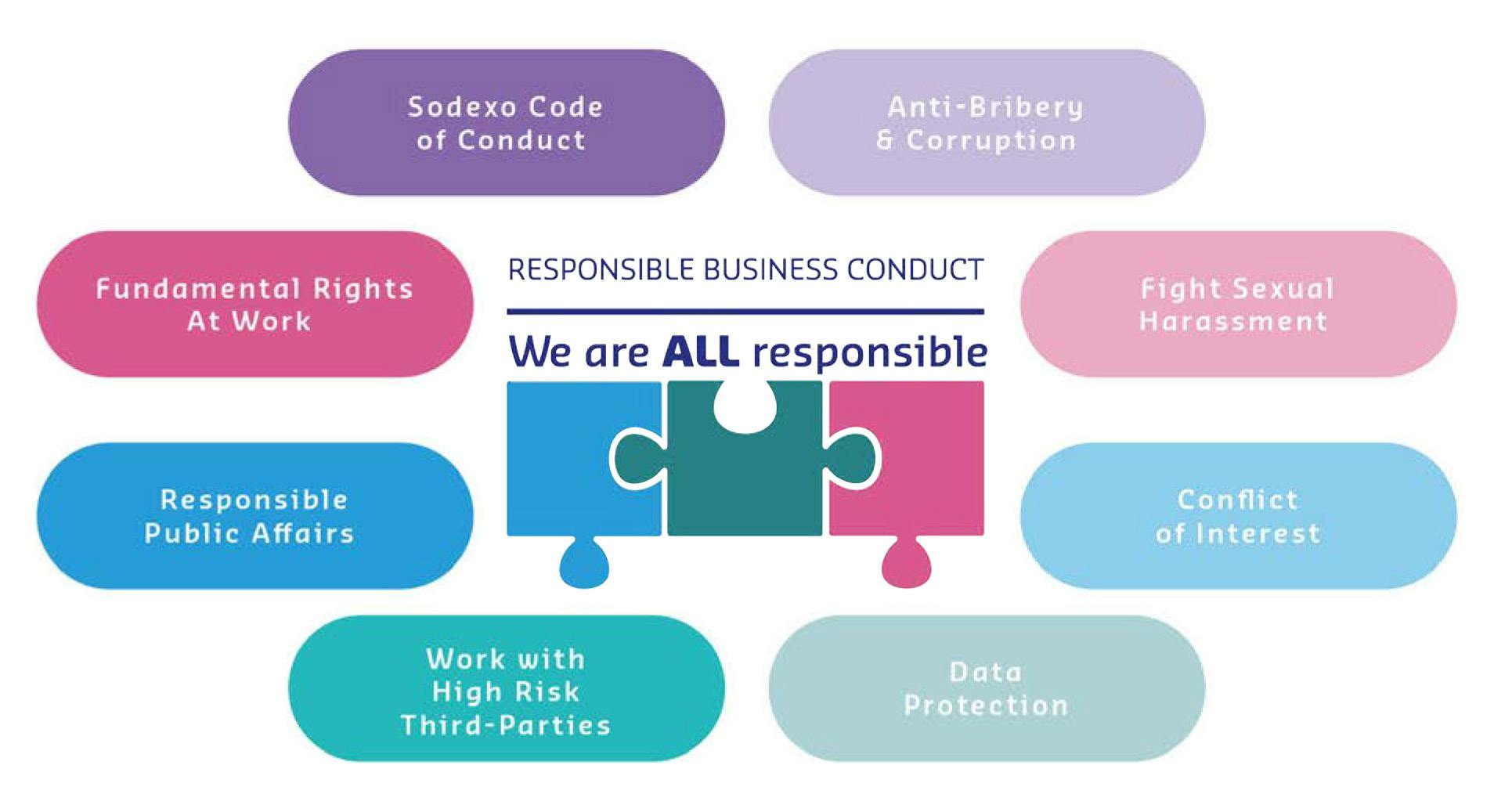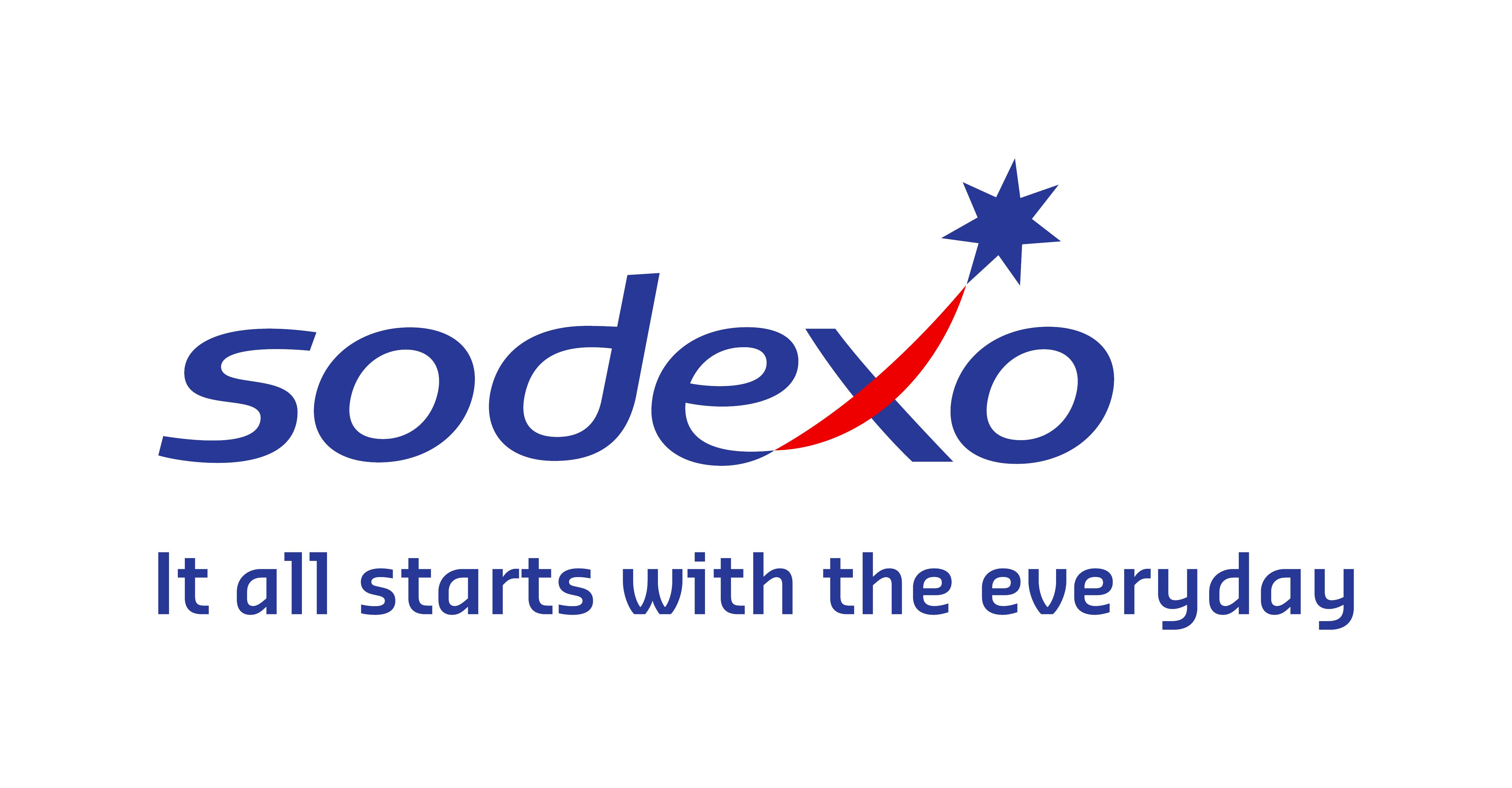
3. Policies and procedures: Sodexo put in place its first Group wide ethics charter in 2007 and subsequently drew up its Code of conduct named: Business Integrity Guide. This document – which sets out the Group’s ethical principles – is reviewed each year. The Code of conduct provides practical examples showing employees how to do the right thing when facing a dilemma. It is available in 30 languages and can be consulted on Sodexo.com. It is supported by policies and procedures, which give employees practical tools for guiding them in their daily work and projects, notably in relation to gifts, invitations, donations, corporate sponsorship, public affairs (a “Public Affairs Guide” has also been published for stakeholders on the Group’s website), international sanctions and high-risk third parties.

4. Training and awareness-raising: Specific training courses on Responsible Business Conduct are developed and delivered within the Group to the staff categories with the highest level of exposure. E-learning modules on Responsible Business Conduct (combating sexual harassment, data protection, public affairs, human rights in the workplace, and preventing corruption and conflicts of interest) have been put in place for all of the Group’s leaders and managers. At August 31, 2022, over 168,000 sessions of these modules had been recorded. These training modules are the subject of regular in-house communication campaigns. In addition, face-to-face training is provided to the Group Executive Committee members and some other categories of employees who are particularly exposed to the different corruption risks. 100% of the Senior Leaders have been trained on corruption prevention.
5. Third-party assessment: Since 2008, Sodexo has had a Supplier Code of conduct, which is translated into 23 languages. All suppliers are required to respect this Code, which is included as an appendix to all commercial contracts, and also to pass on its terms and conditions to all of the participants in their own supply chains. Sodexo is continuing the deployment of its online registration tool in order to centralize information about its suppliers. This tool incorporates all of Sodexo’s requirements related to capacity, certification, geographical coverage, and regulation. It is also used to collect data on social responsibility. Suppliers benefit from a simple interface, which enables them to provide all the required information easily. The advantage for Sodexo is that the tool provides a “gateway” for the collection of information adapted to the Group’s social responsibility requirements. Suppliers are invited to respond to various questions linked to the Group’s social responsibility commitments and are required to update them throughout their relationship with Sodexo. On more specific CSR issues, Sodexo is working with an external partner, expert in CSR performance assessment, to overhaul management of its high-risk suppliers. The first step will identify and prioritize the risk categories, based on CSR and purchasing criteria. Then, the methodology will be progressively rolled out to the suppliers included in these categories. Suppliers in purchasing categories that have historically been identified as being high-risk will also be invited to participate in a detailed document audit. A specific policy “How to work with high-risk third parties” indicates the guidelines to be followed regarding procedures for evaluating, contracting and monitoring relationships with third parties presenting a high level of corruption risk. The Group also extended its due diligence procedures for mergers and acquisitions to include specific ethics and compliance issues.
